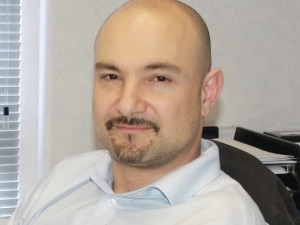
In South Africa, the gap between IT and business hasn't closed. If anything, it has widened as the pressure grows on business to adapt to a digital economy, says Chris Lazari, Service Delivery Executive at EOH MC Solutions.
"Business wants to move quickly to compete with new challengers more effectively, and it sees IT as a cost centre that delivers too slowly and does little to innovate and add business value. Meanwhile, IT is spending over 80% of its time just 'keeping the lights on' and does not have the resource or budget to innovate effectively," he says.
"Instead of being seen as a 'dark arts mystery department' that does not contribute to the bottom line, IT needs to be lifted out of the shadows and position itself as the source of digital economy innovation," he says. To do so, IT must improve communications with business, free itself from maintenance tasks and become more agile and responsive to business needs.
Lazari notes many enterprises in South Africa still opt for the waterfall approach of application development, where business-differentiating applications are handed over for development, and only after the development process is complete, does business realise the application does not deliver what was originally envisaged. "You could find development and integration projects running for up to five years, which simply cannot happen in an environment where business needs innovations in weeks. In cases like this, the delays can most often be attributed to a lack of effective communications on the requirements at the outset, or to scope creep." Instead of the waterfall approach, businesses need to adopt an agile approach to development, he says. "They need to continue streamlining their processes to become more agile, rapidly test and deploy products and deliver quick wins to business."
Lazari says there are a number of ways to overcome the IT-business disconnect, empower IT to innovate and ensure business sees real value from its IT department. "Ideally, IT needs to free itself from managing the non-core infrastructure it does not need to run. Managing e-mail alone can require the allocation of two skilled people to serve a small business with 500 users. By moving non-core stuff like e-mail, basic networking and file sharing off premises, IT can reallocate time, budget and skills from 'keeping the lights on' to focus instead on areas that can deliver a business advantage."
IT can then be redeployed to areas that support business growth and innovation, he says. "For example, business can deploy the team to unlock the data sitting in the system. There are multitudes of systems sitting out there where the data is untapped, and business needs this data for predictive analysis, trends modelling and improving processes and customer experience."
"In any system there is input - users want something that works fast; process - ie, it must do what it's supposed to do; and output. This last component is very important and often where reporting requirements are missed. So we might have a massive ERP system that does what it should, but we leave reporting to last, and this is where business should be getting real value. Through more iterative development models and a focus on output, IT could be deploying mini apps in really short spaces of time, so business can start making use of this reporting data."
In a rapidly changing environment, the onus is on IT to change perceptions and improve its relationship with business, says Lazari: "IT needs to go to business and say: 'We have a way to become more agile, and work smarter.'"
Share
EOH MC Solutions
EOH Microsoft Coastal (EOH MC), formerly Airborne Consulting, was founded in 2004 and is a wholly owned subsidiary of EOH Mthombo, a company in the JSE listed EOH Group. Specialising in IT solutions across the Microsoft technology platform, EOH MC is the largest Microsoft development partner in the Western Cape, successfully delivering significant projects to a broad spectrum of businesses across diverse industry sectors. EOH MC's brand represents uncompromising quality, a commitment to excellence and an innovative approach to delivering real business solutions.
Editorial contacts